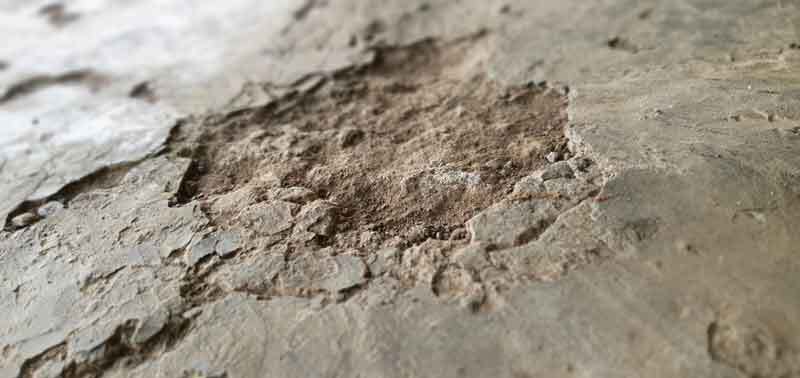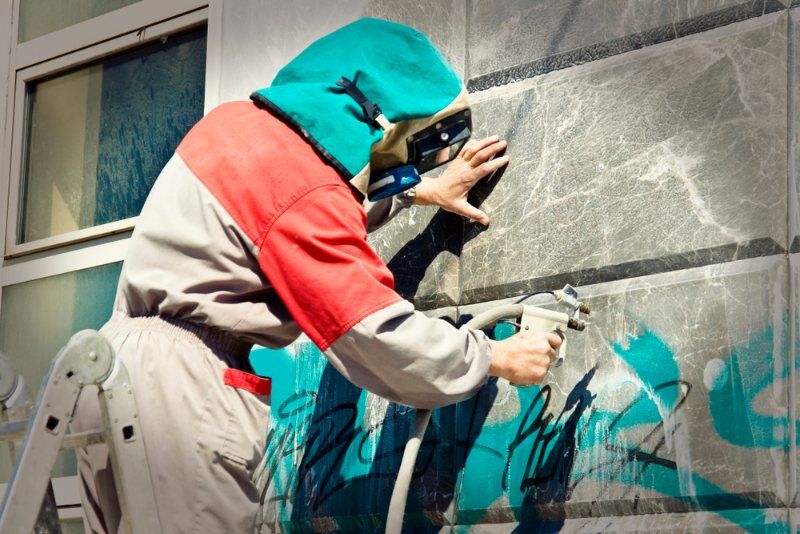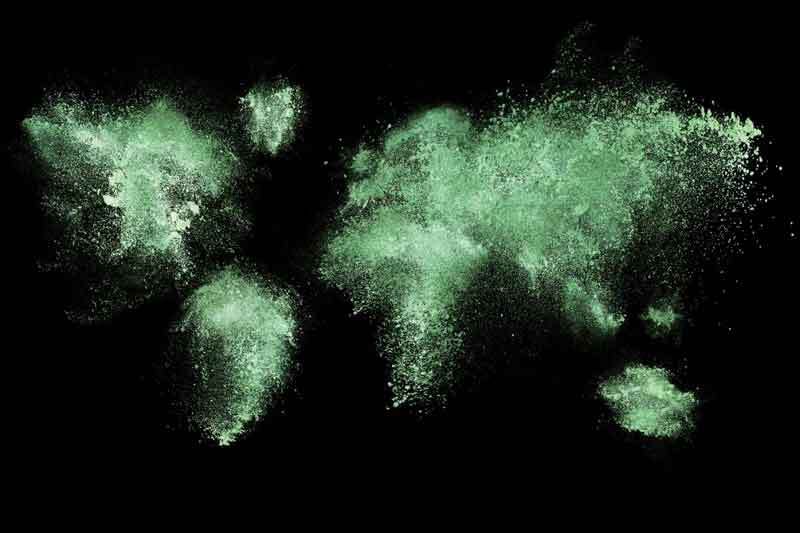Acid resistant coating for concrete

Concrete in industrial environments
Concrete is a commonly used material in industrial environments due to its durability, strength, and ability to withstand heavy loads. In addition, concrete is often the material of choice because of its relatively low cost. If a structure is needed that covers a large area, the choice of concrete is quickly made. Concrete is commonly used in floors and walls, but also for example in:
- Manure cellars and other agricultural applications
- Water treatment plants and concrete pipes for sewage disposal
- Storage tanks
- Battery rooms
- Reservoirs
- Cellars
Concrete is used in many industrial environments where it may come into contact with various concrete-aggravating liquids.
Concrete and acid resistancy
When concrete comes into contact with acids, it can lead to a chemical reaction: an alkali-silici reaction. A harmful chemical reaction in which the concrete reacts with silicates from the environment. Acid attack occurs because concrete is an alkaline material, and when it comes into contact with an acidic substance, the pH of the concrete drops. As a result, the chemical bonds that hold the concrete together weakens. It starts to absorb water and expands. It leads to corrosion of the concrete, resulting in cracks and concrete rot that weakens the construction and reduce its lifespan.
Different kinds of acids that attack concrete
Some specific forms of acid attack on concrete are distinguished:
Biogenic sulphuric acid
Acid attack of the concrete surface by sulfuric acid produced by bacterial conversion of sulfides to sulfuric acid;
Microbiological nitric acid
This form of acid attack is characterized by sanding and the formation of loose shells on the concrete surface by nitric acid-forming bacteria. Occurs the interior walls of cooling towers for example.
Adhesion by salt, minerals and strong acids
This is the dissolution of cement stone as in acid attack. This attack occurs particularly in fertilizer storage (ammonium salt) and seawater attack (magnesium salt).
Soft water
Soft water can dissolve lime. A concrete surface can be damaged if it is in contact with soft water that is constantly changing. This attack mechanism is similar to acid attack.
Acid resistant coating
To protect concrete from acids in its environment, an acid resistant coating is the best solution. A good acid resistant coating can be applied to all types of concrete, regardless of the porosity of the concrete. The coating should deal with the attack of acids, sulfates and other salts as well as the corrosion of reinforcing steel and non-ferrous metals. Which acid resistant coating is best for your situation, depends on the types of acid the concrete comes in to contact with. The table below shows all the coating types along with their overall resistance and the various acids they are not resistant to.
Epoxy coating
Degree of acid resistance: Medium Not resistant against: Sulfuric an nitric acids
Epoxy novalac coating
Degree of acid resistance: Very high Resistant to all types of acids
Polyurethane coating
Degree of acid resistance: Medium Not resistant against: Aggressive acids
Choosing the right acid resistant coating for concrete
When it comes to making a decision in which type of coating is best for your situation, depends on several factors. For example:
- What specific acids the coating needs to be resistant to
- The concentration of the acids
- The temperature of the area where the exposure will occur
- What other properties, in addition to acid resistance, the coating should provide in
The coatings market is changing rapidly. New coatings that are more acid resistant and better for the environment are constantly being developed. adhesives+coatings is up to date with the latest innovations and can help you find the right acid-resistant concrete coating for your application. Please do not hesitate to contact us, we will be more than willing to help you.
Contact us
What solution are you looking for?
We are specialized in the acid resistant coating for concrete. Need the best products or advice? Then please leave your details and we will get in touch.


